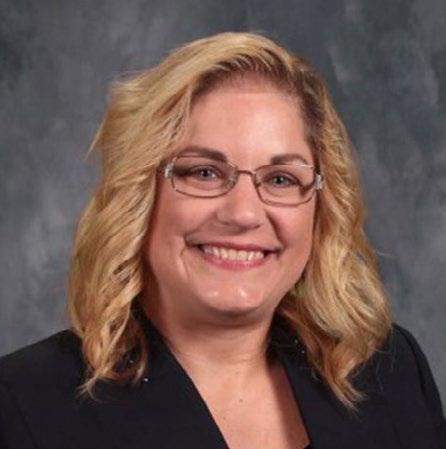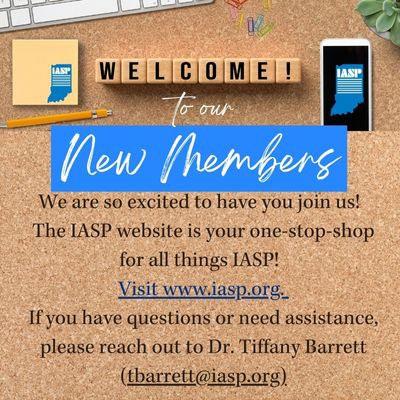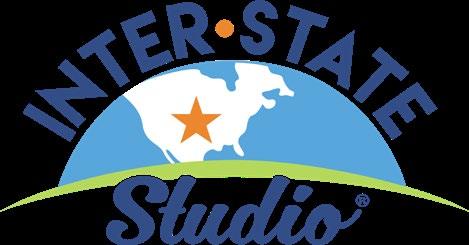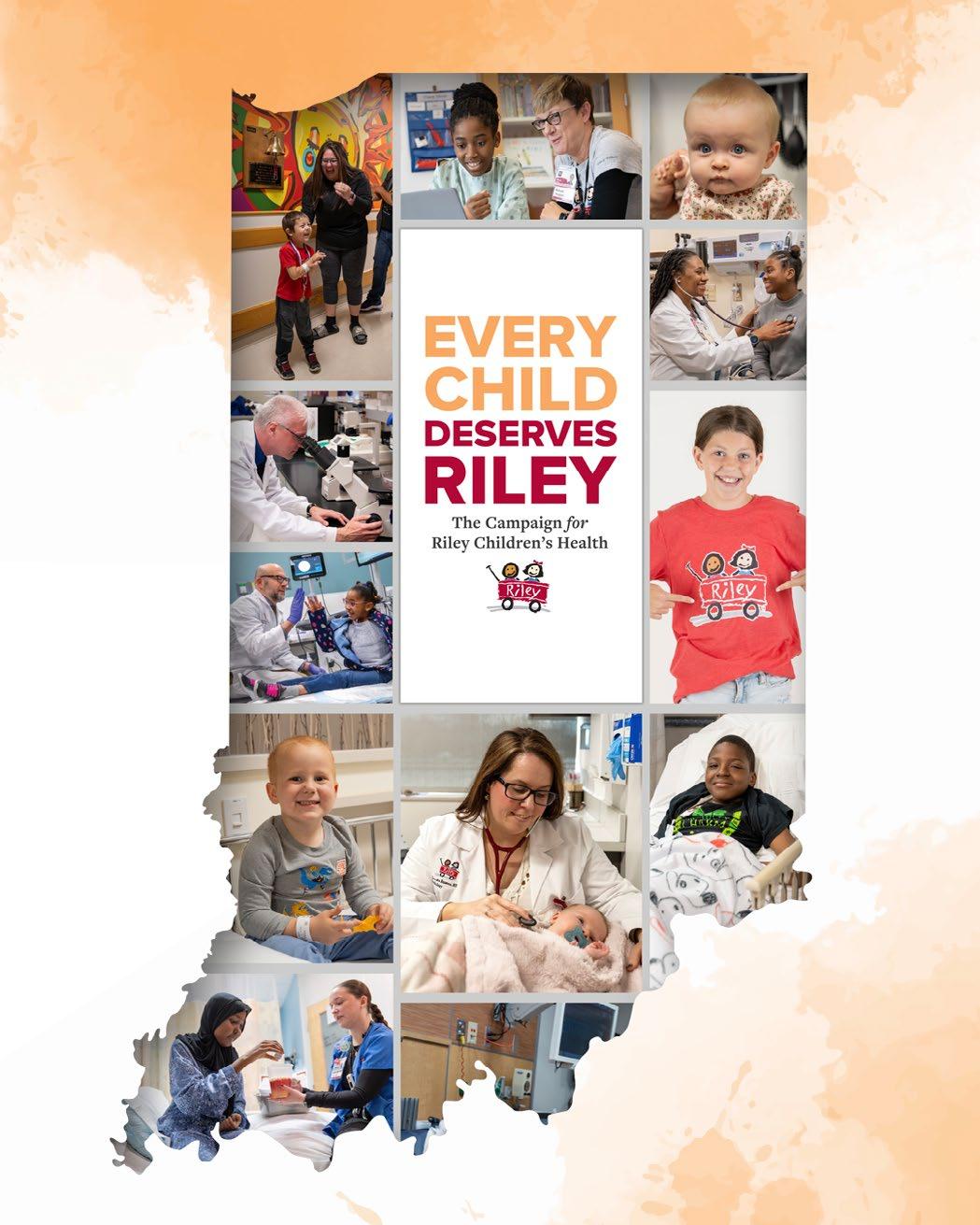






As the school year winds down, it’s important to think about how we can support our students during the summer months. This time away from the classroom can come with its own set of challenges, like learning loss or limited access to regular meals. Thankfully, there are many programs and opportunities available that help kids stay engaged, active, and on track.
The YMCA is a great partner in helping kids stay active and connected over the summer. Their camps provide a safe, fun environment where children can explore activities like swimming, sports, arts and crafts, and more. These programs focus on building friendships, encouraging teamwork, and supporting kids’ emotional and social development.

Additionally, many YMCA programs also include educational elements like STEM projects and health lessons that keep kids learning in hands-on, engaging ways. We will be hosting YMCA day camp in our school building for the first time this summer. This will allow our students, as well as others within the county, to participate in a structured environment over the summer that will encourage them to make new friends, discover interests, and engage in physical activities.
Summer school is another powerful tool to help students stay on top of their academic progress. With smaller class sizes and more personalized instruction, summer school gives students a chance to build confidence and reinforce key skills in subjects like math and reading.
This year, we’ll be offering focused reading instruction through our summer school program for students affected by the new IREAD requirements. Third graders who didn’t pass IREAD, along with second graders identified as at-risk, will have the opportunity to get the support they need and retake the IREAD assessment. It’s a great chance for students to receive the help they need with focused and intentional interventions.
Some teachers offer tutoring sessions during the summer for students who want to keep their skills sharp or need extra help. Whether it’s brushing up on reading or practicing math, these sessions offer one-on-one or small group attention that can make a big difference. Many families also receive summer packets with reading materials and practice activities to keep learning going at home.
Another opportunity for students is the local library, it is more than just a place to borrow books, it’s a hub of summer activity. Many libraries host reading programs, story times, book clubs, and more. These events are a great way to encourage a love of reading, keep literacy skills strong, and connect kids with their community.
For our younger learners, getting ready for kindergarten is a big milestone. Our Kick Start program helps incoming kindergartners get used to the school environment before the first day. Through fun and interactive lessons, children learn about classroom routines, practice early literacy and math skills, and build confidence as they prepare for the year ahead. This program helps ensure every child, no matter their background, can start the school year with confidence.
Supporting students during the summer is about more than just academics, it’s about caring for their overall well-being. Whether it’s through summer school, YMCA programs, early childhood initiatives, tutoring, or the local library, we’re working together as a community to make sure every child has what they need to succeed.
For some families, the summer break also means a break from regular school meals. To help, schools and local organizations offer free lunch programs and food distribution sites throughout the summer. These programs make sure kids have access to healthy meals, often including both breakfast and lunch, to make sure they receive the nutrition they need.
By coming together and investing in our students over the summer, we help them build confidence, discover new interests, and return in the fall ready to thrive.
Dr. Holly Arnold IASP President

As the final bell rings on another unforgettable school year, I want to take a moment to celebrate you—Indiana’s incredible school leaders—who have poured your energy, heart, and expertise into shaping brighter futures for our students. Whether you’ve navigated new challenges, led bold innovations, or simply shown up every day with purpose and compassion, your leadership has made all the difference.
This month’s edition of the Indianagram is dedicated to Summer Supports—an essential theme as we transition from the school year into a season of opportunity. Summer is a time to rest and reflect, yes—but it’s also a time to strategically support students and staff in ways that strengthen learning, bridge gaps, and build momentum for the year ahead.
Grounded in the School Leader Paradigm, we know that true leadership is a cycle of growth. As Learning Leaders, you can harness this summer to Plan, Implement, Assess, and Reflect—even when students aren’t in the building. Here are two examples of how you can apply this approach through summer supports:
1. Culture Domain – Strengthen Belonging Through Bridge Programs:
Consider offering a summer transition program for students moving from elementary to middle school or middle to high school. Focus not only on academic readiness but also on building relationships, reducing anxiety, and creating a sense of belonging. These programs strengthen the Culture domain by proactively supporting students' social-emotional needs and fostering a connected school climate.
2. Systems Domain – Create a Summer Learning Strategy: Use data from end-of-year assessments to identify learning gaps and develop targeted supports. Whether it’s a summer learning academy, digital learning playlists, or small-group tutoring partnerships, a strong Systems approach allows you to strategically align resources and ensure students re-enter the school year more prepared and confident.
Throughout this edition of the Indianagram, you’ll find outstanding contributions from Indiana school leaders and our valued educational partners who share additional insights, tools, and inspiration for supporting summer growth. From academic interventions to staff planning retreats, the strategies shared here are practical, innovative, and built with your leadership in mind.
As we close out the 2024–2025 school year, please know how deeply grateful we are for your partnership. Your commitment to leading with heart, purpose, and adaptability continues to shape the future of education in Indiana. Enjoy this edition of the Indianagram, and may your summer be filled with rest, reflection, and renewed inspiration.
With gratitude and admiration,
Dr. Tiffany Barrett IASP Assitant Executive Director
2024-2025 Themes
June: The Best of the 2024/2025 School Year!
Share your thoughts on the Indianagram: https://forms.gle/2LaxqTUNUc5AdviF8
IASP Executive Committee
Dr. Holly Arnold President
Andy Allen President-Elect
Bret Bailey Vice President
Dr. Crystal Murff Thorpe Past President
Raimeka Graham
NAESP State Representative
Dave Strouse
NASSP State Coordinator
Steve Baker Liaison to the DOE
Kristen Peterson
Assistant Principal Liaison

IASP hosts events throughout the year to support the growth and development of Indiana school administrators and students. Each event is intentionally designed to encourage and engage all participants in the pursuit of learning!
Find A Full List Of Events at www.iasp.org/Events


Lifetouch is proud to support The Indiana Association of School Principals in the mission to lead in the advocacy and support of all principals in their commitment to every child.
Steve Nurre
522 West Carmel Drive Carmel, IN. 46032
Phone: 317-829-2056
Email: steve.nurre@lifetouch.com schools.lifetouch.com













Dr. Katie Jenner Indiana Secretary of Education
Recently, my Instagram feed has been full of reels describing the month of May as the new December (“Maycember” is what some are calling it)…full of end-of-year activities and chaotic schedules with multiple events per day…and night! As schools are heading into the final days of the 2024-2025 school year, I know many of you can relate. And, despite the crazy busy schedules, I hope you can take time to enjoy the many celebrations that this time of year brings.
With summer learning, vacations, and educator professional development opportunities just around the corner, schools, business and industry, and higher education partners will also be hard at work preparing for next school year. This includes preparing for the implementation of the new high school diploma…so, this month, I’d like to highlight a recent announcement specifically about the new readiness seals.
Indiana’s new high school diploma requirements increase flexibility for students to personalize their journey, as well as increase access to both work-based learning and credentials of value. With this increased flexibility, the ability to add a readiness seal provides students with a transparent blueprint for success, whether they plan to continue their education after high school, go straight into a career, or serve in our Nation’s military.
At the beginning of April, Governor Braun announced that we have secured a number of partnerships that ensure these readiness seals, or blueprints for success, have tangible currency for students, providing them an increasingly direct path to their future
If you recall, when these readiness seals were first introduced last year, the announcement was done in partnership with a number of key stakeholders. This included colleges and universities, the Indiana Chamber of Commerce, insights from Ascend Indiana's work with employers, business and industry, as well as the Indiana National Guard, in conjunction with representatives from each military branch and public safety officials.
Last month, Governor Braun announced that many of the same partners who helped us to develop the readiness seals are now solidifying the seals’ value, ensuring they have tangible currency and providing students a direct path to their future. Below is an overview of just some of the opportunities available to students beginning with the 20252026 school year for schools that opt-in and for all students beginning with the class of 2029.
Enrollment honors and honors plus seals: Guaranteed Currency
All seven of Indiana’s public colleges and universities are guaranteeing automatic acceptance into their school for any student who applies and has successfully earned

the enrollment honors plus seal. This includes Ball State University, Indiana State University, Indiana University, Ivy Tech Community College, Purdue University, University of Southern Indiana, and Vincennes University. A growing number of satellite campuses as well as private colleges and universities have also expressed interest.
Employment honors and honors plus seals: Guaranteed Currency
Through the help of Ascend Indiana, students who earn the honors plus seal can receive dedicated career support, helping them get connected through interviews with and potentially being hired by some of Indiana’s top employers such as: Community Health Network, CFA Staffing, Cummins, Eli Lilly and Company, Parkview Health, and Roche Diagnostics.
Students who interview and have completed either the employment honors or honors plus seal will also be eligible for direct entry into the Central Midwest Carpenters Union apprenticeship. We are also working with Operation Engineers Local 150 to offer similar benefits in connection with their apprenticeship.
Enlistment and service honors and honors plus seals: Guaranteed Currency
Students who complete the enlistment and service honors plus seal will be uniquely qualified to join the Indiana National Guard and other military branches. Once accepted into the Indiana National Guard, students can:
■ Earn college credits for completing training and reduce the time and cost required to complete a degree;
■ Gain direct access to veteran mentors and military career counselors who can provide college and career guidance; and
■ Access priority job placement programs designed for military professionals, offering job interviews for federal employment and private-sector roles where military experience is highly valued.
The work happening in communities across Indiana is truly leading the way when it comes to redesigning the high school experience, ensuring these four years are as valuable as possible. I could not be more excited and proud of the various change agents across the state who are partnering in this work for students.
Thank you to all who are listed above and the many others unnamed for their unwavering commitment to Hoosier students… and to each of you for your leadership at the local level. As one school year ends and preparation for the next is in full effect, I hope you also enjoy some well-deserved time to relax this summer! Thank you for all you do!,



Mrs. Kristen Peterson
Associate Principal
Chesterson High School
IASP Assistant Principal Liaison
Mrs. Tiffany Hawkins Assistant Principal Chesterton High School
Our May theme highlights the innovative ways schools are extending learning and enrichment opportunities through “Summer Support” programs for students.
In this month’s feature article, Tiffany Hawkins, Assistant Principal at Chesterton High School, provides an in-depth look at the wide range of resources and programs available to CHS students during the summer months. These offerings are designed to support academic success, promote continued learning, and ease transitions between grade levels.
Chesterton High School offers an impressive selection of summer initiatives, including credit recovery options for students needing to get back on track, academic pathway programs to guide future coursework, dual credit classes that allow students to earn both high school and college credit simultaneously, and the Freshman TEAM (Trojan Education with Alternative Methods), which helps incoming ninth graders prepare for a successful start to high school.
Thank you to Tiffany Hawkins for sharing the many thoughtful and impactful strategies CHS uses to support student achievement and engagement over the summer break!
Chesterton High School Offers Robust Summer Support Opportunities for Students
Chesterton High School is committed to ensuring that all students have the tools and resources they need to succeed, both during the academic year and beyond. Our school offers a variety of summer support options, including credit recovery, academic pathway programs, dual credit opportunities to complete the Indiana College Core (ICC), and a unique Freshman TEAM Summer School experience designed specifically for incoming 9th graders.
Credit Recovery and Pathway Options
For current CHS students who need to retake a course, the summer credit recovery program offers a valuable second chance. These sessions are designed to help students catch up on required coursework in core subjects, ensuring they stay on pace for graduation. The program also helps students avoid falling behind, which can be difficult to recover from during the regular school year.
In addition to credit recovery, CHS students can also pursue an academic pathway and/or complete dual credit coursework required for the ICC during the summer. With the
ability to now opt-in to the new high school diploma, which also increases the possibility of being accepted into a state university, our students can complete coursework that meets the Enrollment Honors Plus Seal during the summer as well. Students can choose to take Advanced Speech and Advanced Composition for dual credit in order to fulfill the requirements for their ICC. The multitude of support that CHS provides students who either need to get caught up, or just want to get ahead, is plentiful.
One of the most exciting offerings during the summer is the Freshman TEAM Summer School, an innovative program specifically tailored for incoming ninth graders. This opportunity allows students to earn up to four high school credits before they even set foot in a CHS classroom in the fall, and includes exploratory field trips to expose students to future college & career opportunities.
Courses offered through the Freshman TEAM program include:
■ Physical Education (PE)
■ English Lab
■ Math Lab
■ Preparing for College and Careers
Each course is designed to build foundational academic and social skills, introduce high school expectations, and create a smoother transition to the high school environment. The program also emphasizes personal development, goal-setting, and teamwork—essential components of long-term academic and career success.
This summer experience is particularly beneficial for students who may need additional support as they move from middle to high school. It gives them a jump start on earning credits and builds confidence through early exposure to high school-level coursework. More importantly, it helps them establish strong study habits and develop a network of peers and educators dedicated to their success. As a result of the supports in place, this at risk population has consistently been beyond 90% on track to graduate after their freshman year for the last four years!
Chesterton High School’s summer offerings reflect the school’s ongoing commitment to meeting students where they are and guiding them to where they want to be. Whether a student is catching up, getting ahead, or transitioning into high school, CHS provides meaningful summer support opportunities to help them succeed.
Tiffany Hawkins thawkins@duneland.k12.in.us
Kristen Peterson kpeterson@duneland.k12.in.us
Happy Spring Indiana Administrators! This is a busy time of year and realize that some of your present and future educators are seeking initial license programs that would allow them to teach while they learn! The IU Bloomington Transition to Teaching programs are very strong and continue to grow! Our accelerated and flexible secondary and special education license programs are specifically designed to meet the needs of today’s inclusive classrooms (with an emphasis on Science of Reading and student engagement). The websites for our Transition programs are linked here. The deadline for the annual Online Secondary Transition summer cohort is May 5th. The Fast Track, Online Special Education (P-12) deadlines are July 15 and December 1. Thank you, in advance, for sharing this opportunity with those who would benefit from these exceptional license programs with wrap around support and flexibility from start to finish!

Beth Cooper, EdD Assistant Professor of Educational Leadership Ball State University
Summer often conjures a vision of fun in the sun and vacation for many people, but to school leaders it also offers an interval to help kids catch up or get ahead. The number of summer opportunities you can offer in your school or district depend on available funds and resources as well as the needs and interests of kids, families, and staff. Programs might include summer school for credit recovery, advanced courses, and grade level promotion, or summer bridge programs to prepare students during transitions from elementary to middle school, middle to high school, or high school to college, or enrichment programs like robotics camps or SAT-prep sessions.
No matter which programs you offer, planning thoroughly, maximizing resources, and evaluating the outcomes remain essential steps. Be sure to monitor the programs and tell everyone how it went so you can determine if you’ll offer the same programs next summer or make any changes. Sometimes there’s not a lot of time to plan, not a lot of funds, and not a lot of experienced staff to lead the summer programs, but that doesn’t have to stop us from evaluating the outcomes or accomplishing our goals. Summer programs offer great opportunities for assistant principals, master teachers, or eager staff members to gain experience leading in a somewhat lower-stakes environment.
Whether you’re a new leader or an experienced one, taking time to plan and complete program evaluations remains a critical step to determine if a program is effective or can be improved. Here’s a list of guidelines for program planning and evaluation processes that you can apply this summer.
■ Identify your highest priorities and objectives for summer. Look to your strategic plan, recent state testing scores, academic indicators, and input from stakeholders to identify your HIGHEST PRIORITIES. What are the students’ areas of highest need? Can you also provide enrichment opportunities? What are the students and families most interested in doing during summer – academics, enrichment camps, or athletics? Define your OBJECTIVES based on outcomes such as student academic score improvement, credits recovered, participation numbers, or satisfaction surveys.
■ Consider your resources available. First, think about

FUNDS. What dollars are available from general funds, state funds, community partnerships, or grants? What percentage of your families can afford to pay for summer programs? For which programs would it be appropriate or not appropriate to charge fees? How can you offer scholarships or reduced pricing for students who qualify as low income? Next, think about STAFF. Which staff members in which types of roles will you need to run the programs? Who could lead each program and how much will each staff member in each role be paid? What talents do staff in your district have? Offering staff members opportunities to be paid for summer work often supports staff retention. Will you contract any outside organizations to offer enrichment camps or other programs? Lastly, consider LOGISTICS. Will you provide bus transportation for students? Which drop-off and pick-up times work best for parents? Will you provide breakfast, lunch, or snacks? Will the sessions last a few hours or a full day? Which buildings will be needed? Can you consolidate programs in certain buildings to reduce operating costs? Can some programs be offered partially or completely online?
■ Plan programs aligned to key objectives. Identify your TARGET STUDENT POPULATION for each program. Who will be required or invited to participate in each program? DEFINE OBJECTIVES 3 to 5 objectives for each program. I recommend at least one objective focused on participation and another on performance. For example, an objective for high school credit recovery might be achieving 90% participation rate and 90% passing rate in at least one summer course for students who are behind in course credits. For an enrichment camp, an objective might focus on high satisfaction survey ratings by students and parents with at least 90% reporting they would recommend the camp to a friend.
■ Measure the outcomes. WHAT outcomes should be measured – participation, performance, costs, or satisfaction? WHEN should you measure each outcome? Will you measure outcomes for participation on day 1, 2, 3, then weekly? Which

Dr. Kelly Andrews Director
Indiana Principal Leadership Institute
IPLI is a premier professional development opportunity for Indiana's practicing principals. We support and encourage you and provide growth in your leadership as we learn, lead, and connect.
Summer is important for school principals to recharge and prepare for the upcoming academic year. The Indiana Principal Leadership Institute (IPLI) offers a kickoff opportunity that provides invaluable support, ensuring principals are equipped with the skills and tools needed to enhance their leadership capacities and improve their schools' learning environments.
IPLI encourages principals to use the summer break to reflect on the past year and re-energize. This time is essential for principals to distance themselves from the daily stresses of school management, focus on personal growth and well-being, and prioritize activities to energize themselves. IPLI recognizes the importance of personal well-being for school principals. IPLI encourages principals to take time for themselves, spend quality time with loved ones, and engage in joyful and relaxed activities.
To re-energize, IPLI provides summer professional development opportunities for those eager to commit to their leadership growth, which includes seminars and regional focus cohort meetings designed to enhance leadership skills and address specific challenges school principals face. These professional development breaks are tailored to meet the needs of principals at different stages of their careers, ensuring continuous growth and improvement. Summer professional development with IPLI also emphasizes the importance of networking and collaboration. Principals can connect with peers, share experiences, and learn from each other. This collaborative environment fosters a sense of community and support, which is vital for effective leadership.
Additionally, the institute provides energetic keynote speakers in the summer session who ensure principals return to their schools refreshed and ready to tackle the challenges of the new academic year. This holistic approach ensures principals know and understand they have a network of peers to connect with and share throughout their leadership journey.

IPLI's summer opportunities provide a comprehensive approach to professional and personal development for school principals. By focusing on reflection, professional growth, networking, and personal well-being, IPLI helps principals lead their schools with renewed energy and effectiveness.
IPLI welcomes the Indiana principals and mentors to Cohort 13, who will launch their two-year leadership journey on June 24-25, 2025, in Terre Haute near the Indiana State University campus.
They will be joined by the mentors, principals, teacher leaders of Cohort 12, and IPLI graduates to hear keynote speakers Dr. Patrick Hardy, Kim Campbell, Dr. Todd Whitaker, Dr. Mario Acosta, and Annette Breaux. These elite educational leaders and authors will energize and encourage our Indiana principals for the upcoming year with skills and tools to enhance their leadership.
These are exciting times to be an Indiana school leader!
To learn more about IPLI, please visit our website, www. indianapli.org, or connect with Dr. Kelly Andrews, Director, at kelly.andrews@indstate.edu to learn more about the IPLI program. Don't miss this opportunity to join a community of dedicated leaders committed to excellence in education.


Susan Miles Program Officer, Kids Caring & Sharing TM
Riley Children’s Foundation smiles@rileykids.org
Kids Caring & Sharing 2024-2025; the giving year that flew by
I don’t know if it’s just me or if the days truly are picking up pace! It seems like a mere week ago when Brownsburg High School’s Chain Link leaders led their school corporation’s annual Riley Week in late August and just days ago when James Whitcomb Riley Elementary students and staff helped celebrate Riley Hospital’s 100th anniversary by placing a wreath on Mr. Riley’s grave on his birthday, October 7. From November’s 26th annual Potter’s Marathon at Concord Community High School to Bluffton High School and Bluffton-Harrison Middle School’s yearly Riley weeks in December, Indiana K-12 schools were early philanthropic leaders in school year 2024-2025
And while April showers may bring May flowers, schools have been raining money throughout the winter and spring to help Riley kids. East Allen County Schools hosted their annual districtwide Riley campaign in January with Fort Wayne Community School’s kicking off their yearly Riley campaign in February. Westfield-Washington Schools and Fairfield Community Schools debuted successful corporation-wide online giving campaigns this year and gifts continue to come in from CarmelClay Schools who also claim the largest and highest grossing high school dance marathon in the nation benefitting a Children’s Miracle Network Hospital. Students in Columbus area high schools dedicated senior projects to raising awareness about and funds for Riley Hospital while Grassy Creek Elementary (Greenwood) pursued their passion of supporting the Heart Center at Riley. Books have been read, miles have been walked, slime has been dumped, pies and basketballs have been thrown, and heads have been shaved at schools throughout the state all in the name of helping Indiana’s most seriously ill and injured kids. With just weeks remaining many schools will still host end-of-year carnivals, field days and dances to support the cause.
Thank you for your dedication, generosity and fundraising creativity and know that Riley Hospital

for Children simply would not be the same without your support!
Be sure to submit your KCS gift in checks made payable to the Riley Children’s Foundation by June 1, 2025 to be recognized within the 2024-2025 participation year.
Riley Children’s Foundation P.O. Box 3356
Indianapolis, IN 46206-3356
Attn: KCS/Susan Miles
It’s not too early to start planning for next school year’s Riley campaign. If you’d like help establishing a personalized online Riley campaign for your school/school corporation, please let me know and I can help you have that ready to go for school year 2025-2026 !

employment action was taken against her, and a causal connection between the two events. The school would then need to offer a non-discriminatory reason for their actions. The mother seems to rely on statements she made at her disciplinary hearing about discrimination based on sex. This is problematic to her claim because she can’t prove that the school’s actions were merely pretext to retaliate against her if her protected statements did not occur until after the disciplinary recommendation was already made. She was unable to show a causal connection between the statements and the employment action by the school or that the school’s actions were pretext for retaliation.
What is the legal lesson from this brief?
Situations involving an employee who is also a parent of a student in the school are often delicate to deal with and properly handling them involves using your advanced relationship and communication skills. Our default counsel would be to look for informal
resolutions to conflicts. However, an employee/ parent will be hard pressed to convince a judge that being a parent exempts compliance with reasonable employment rules. If the employee/parent claims discrimination based on sex or any other protected class, rest assured that your steady hand of equal treatment of similarly situated employees backed up with contemporaneous documentation will prevail.
We at the KGR Legal Help Desk are here to address these and any non-personal employment legal issues for IASP members. Until the next KGR Law Brief, we wish you a “boring” end to the school year.
